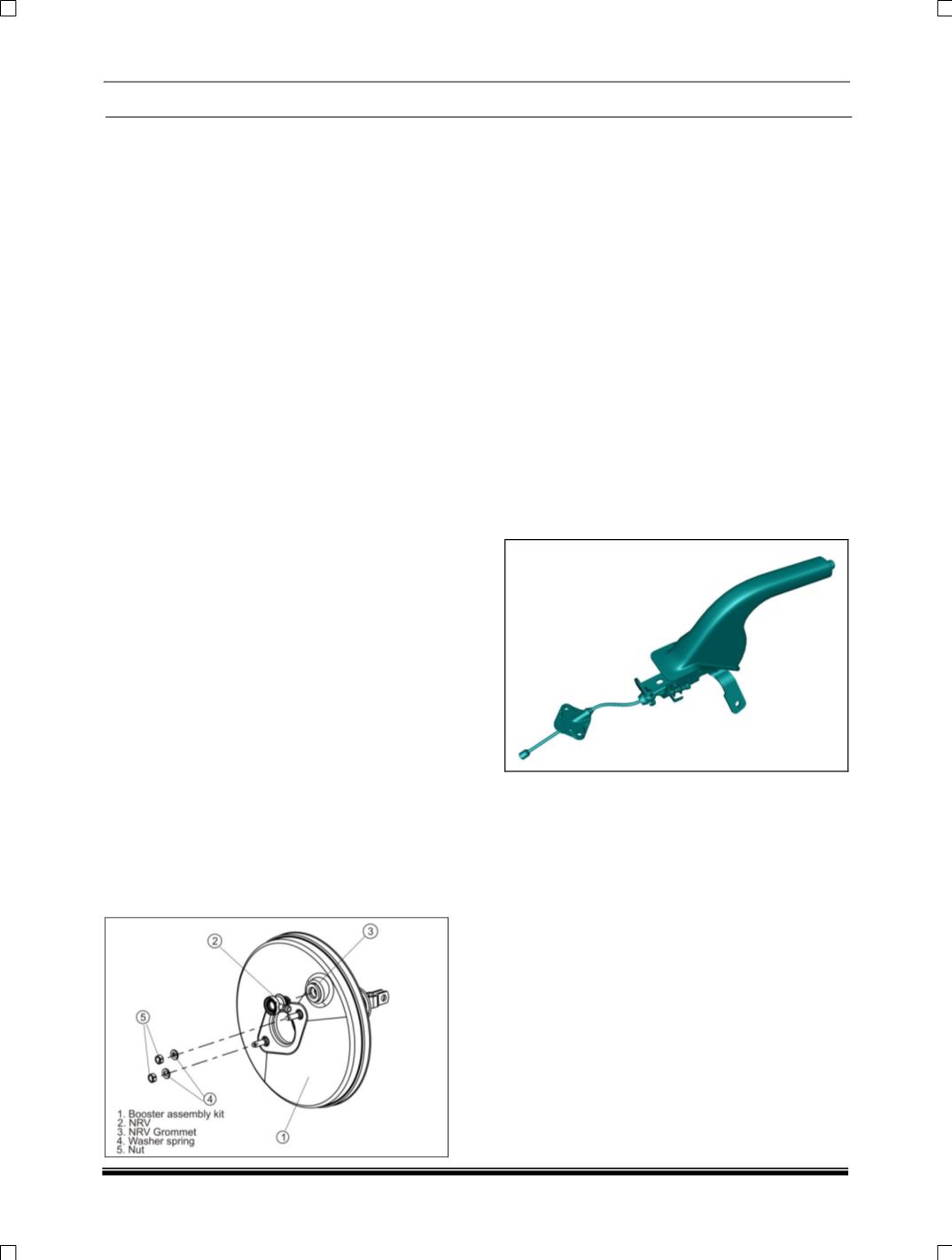

BRAKES
27
BRAKE BLEEDING THROUGH SOFTWARE:
A normal bleeding procedure can be employed
whenever:
Changing brake fluid as per the service
intervals / schedule.
Replacing new brake system part like ABS
hydraulic unit, master cylinder, wheel
cylinders, correction valves and repair of
hydraulic lines.
Spongy / Soft brake pedal or pedal travel high
complaint.
In below mentioned specific cases, bleeding
process known as “ABS Secondary Circuit
Bleeding” is to be employed. In this method
solenoid valve and the pump motor are actuated
by Software based TML - diagnostic system.
If customer service intervals are exceeded 5
yrs. or more.
Brake pedal feels soft following ABS
application.
NOTE: Before conducting “ABS Secondary
Circuit bleeding” a normal bleeding should be
performed.
NOTE: Please refer to TML diagnostic tool for
ABS system bleeding
SERVICING OF BRAKE BOOSTER
NOTE:
Other than non-return valve kit, internal parts of
brake booster are not serviceable in case of a
major complaint/fault; replace the brake booster
as an assembly.
The output rod is retained internally and cannot
be extracted. If the rod or the domed screw on the
rod end is damaged the Supervac Unit must be
replaced completely.
No attempt should be made to disturb the domed
screw. This is correctly set at the factory and
should never be disturbed.
PARKING BRAKE CABLE ADJUSTMENT
Before checking parking brake cable slackness
adjustment, confirm the following conditions.
Bleeding should be completed. (i.e. there should
not be air trapped in the brake system) Confirm
pedal travel by depressing the brake pedal for few
times. Check the lining condition of the rear brake
it should not worn out beyond limit
After confirming all the above points, start
adjusting the parking brake lever stroke by either
loosening or tightening the self-locking slackness
adjustment nut after adjustment check for
dragging of rear brake drum
INSPECTION OF PARKING BRAKE:
Pull the parking brake lever at the grip center by
15-20 kg force, with this force the travel should
not exceed 6th notch position. Check both the
wheel are locked at this condition and release the
lever (i.e. take it to home position, Zeroth Notch)
and check for free rolling of the wheels.
For counting the notches easily, listen to the click
sound from the ratchet while pulling the parking
brake lever without pressing the button. one click
sound pertaining to one notch movement.










